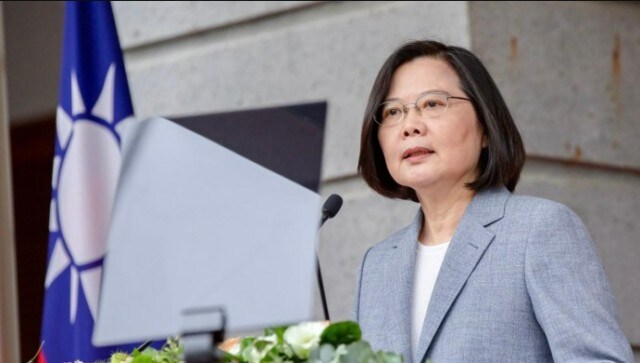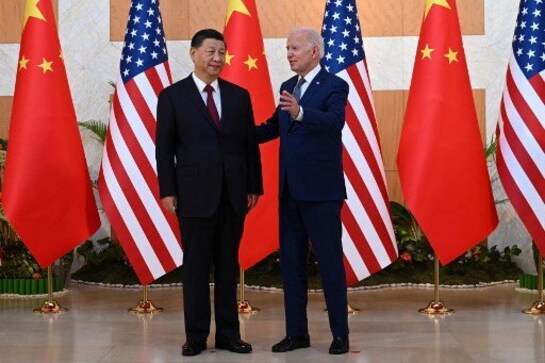Taiwan President Tsai Ing-wen resigns as party head after poor results in local elections
The election has drawn international attention as Taiwan has become a bigger geopolitical flashpoint between the US and China.

Taiwan President Tsai Ing-wen. AP
Taipei: Taiwan’s President Tsai Ing-wen has resigned as head of the governing Democratic People’s Party (DPP) after its poor showing in local elections held on Saturday. The opposition Kuomintang (KMT) has won major races in yesterday’s election, including in the capital Taipei.
The election has drawn international attention as Taiwan has become a bigger geopolitical flashpoint between the US and China. President Tsai had framed the election as a vote for democracy amid the tensions with China.
While speaking to the reporters, Tsai, who will continue as president of the self-ruled island, told, “The election results were not as expected… I should shoulder all the responsibility and thus, I resign as DPP chairperson immediately.”
The election for local councils and city mayors theoretically have focused on domestic issues such as crime, social welfare, housing, energy, and those elected won’t have a direct say on Taiwan’s policy regarding China.
During the election campaigns, Tsai and her government officials had urged voters to utilize this elections to stand up for democracy and send Beijing a message that the island won’t bow in front of them.
Reportedly, the voters have also rejected lowering the voting age from 20 to 18, in a referendum that was run alongside the elections. The Chinese government perceives Taiwan as a breakway province that will, eventually, be part of the country, considering its ‘One-China’ policy.
China-Taiwan tensions
The Republic of China (ROC) government was established in exile when the Kuomintang administration after losing the Chinese Civil War withdrew to the island of Taiwan. The People’s Republic of China was founded on the Chinese mainland by the Communist Party of China (CCP).
Taiwan has enjoyed de facto independence since the end of the civil war, and the CCP has never held power there. Taiwan has developed into a thriving democracy with free elections and media since the decades-long martial law era ended in the 1980s.
Today, less than 15 foreign governments recognise the ROC (Taiwan) as a country. This shift in formal links from the ROC to Beijing began in the 1970s.
In recent years, under Xi’s leadership, China has sent numerous warplanes into Taiwan as part of ‘grey zone’ activities, which are combat-proximate but do not get to the level of war. In an effort to prevent Xi Jinping-led China, Taiwan is currently working towards modernising its military and purchasing significant quantities of military equipment and weaponry from the US.
Read all the Latest News, Trending News, Cricket News, Bollywood News,
India News and Entertainment News here. Follow us on Facebook, Twitter and Instagram.
also read

Coronavirus erupts in China once more even as ‘Zero-COVID’ policy has already frayed tempers
Case numbers have surged across China, with residents in Beijing worried that a record number of new infections will lead to lockdown measures similar to those seen earlier in the year in Shanghai, which lasted for months

Beijing sees record Covid cases as China outbreak spirals
New cases in Beijing have also jumped in recent days, more than doubling from 621 on Sunday to Tuesday's 1,438 -- a pandemic record for the city

G20 Summit: 'Don't cross Taiwan red line,' warns Xi as Biden raises concerns over Chinese aggression
The two leaders held talks on the sidelines of the summit in Indonesia's Bali. Biden told Xi that 'Chinese aggression has undermined peace and stability across the Taiwan Strait and in the broader region'
